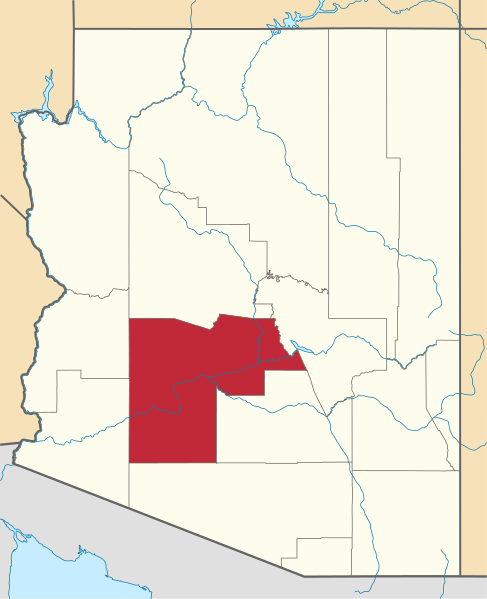In a follow-up to a report earlier this month, Maricopa County Departments of Public Health (MCDPH) and Environmental Services (MCESD) continue to investigate and respond to a community-wide outbreak of a diarrheal illnesses caused by the parasite Cryptosporidium parvum, first reported on August 4th.

To date, MCDPH has identified more than 100 individuals infected with Cryptosporidium, or Crypto. These individuals have named more than 20 recreational water facilities throughout Maricopa County that are at risk of being contaminated with Crypto. In response, MCDPH is recommending that any facility in which an infected person swam prior to illness or while sick be treated for Crypto. MCESD is notifying the facilities that are affected and recommending that CDC guidelines for decontamination are being followed.
“Unfortunately, there is no reliable test for Crypto in water, so there is no way to know which pools are contaminated with this parasite,” said Dr. Rebecca Sunenshine, medical director for Maricopa County Department of Public Health. “Right now, this outbreak is community-wide and there is an increased risk to those swimming at recreational water facilities. The most important thing the public can do to prevent spread of this disease is to stay out of the water if you have diarrhea, until at least two weeks after symptoms resolve.”
Dr. Sunenshine added that it is also important to avoid swallowing water while swimming, to wash hands with soap and water and take frequent bathroom breaks out of the pool.
While some people with Crypto will have no symptoms, the most common symptom is watery diarrhea that generally begins one week (range from 2-10 days) after infection. Other symptoms include stomach cramps or pain, dehydration, nausea, vomiting, fever, and weight loss. Persons with healthy immune systems usually recover in 1 to 2 weeks without treatment.
“Although Crypto can infect all people, Individuals with weakened immune systems can have more prolonged symptoms and should contact their healthcare provider for additional guidance,” advises Dr. Sunenshine. “If you have diarrhea lasting longer than 10 days, blood in your stools, or have trouble staying hydrated, see a healthcare provider and let them know you may have been exposed to Cryptosporidium.”
Crypto is typically spread in swimming pools or other recreational water when an infected person swims, contaminating the water with fecal matter or poop. Although chlorine kills most germs in swimming pools, Crypto can survive even in properly chlorinated water for long periods. Residential pools are considered to be at much lower risk for spreading Crypto; however, it is important to keep them properly maintained and avoid swimming with diarrhea.
Related:
- Zika transmission identified in Miami Beach
- ‘Trends in Tickborne Diseases’, a HHS joint webinar available online
- CDC Updates Guidance for Care of Infants Born to Mothers with Possible Zika Virus Infection During Pregnancy
- Cyclospora: Ontario and Quebec account for 10 new cases in Canada
- Puerto Rico reports 1st flu death of season

